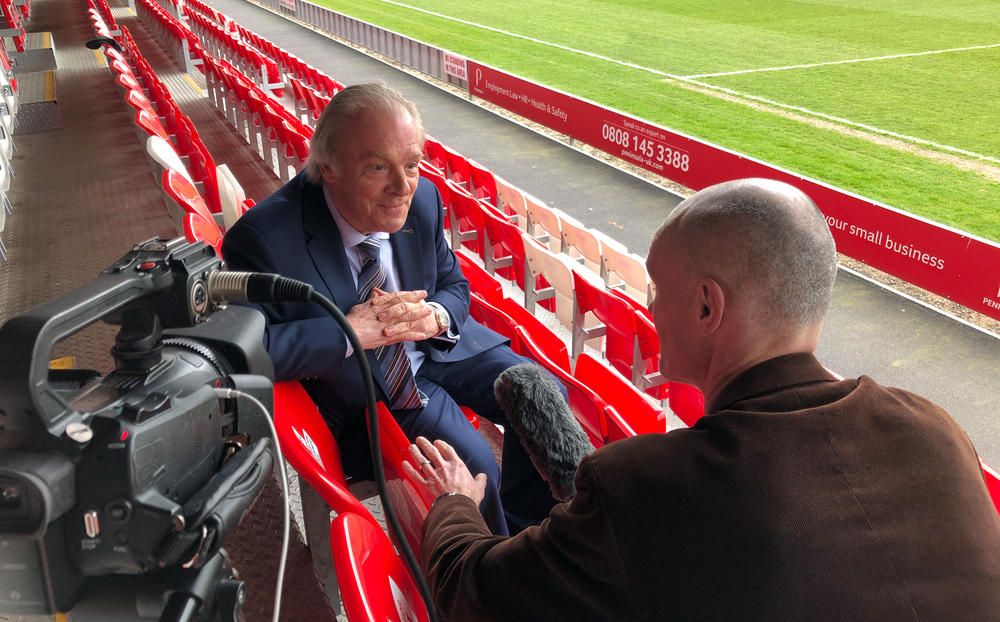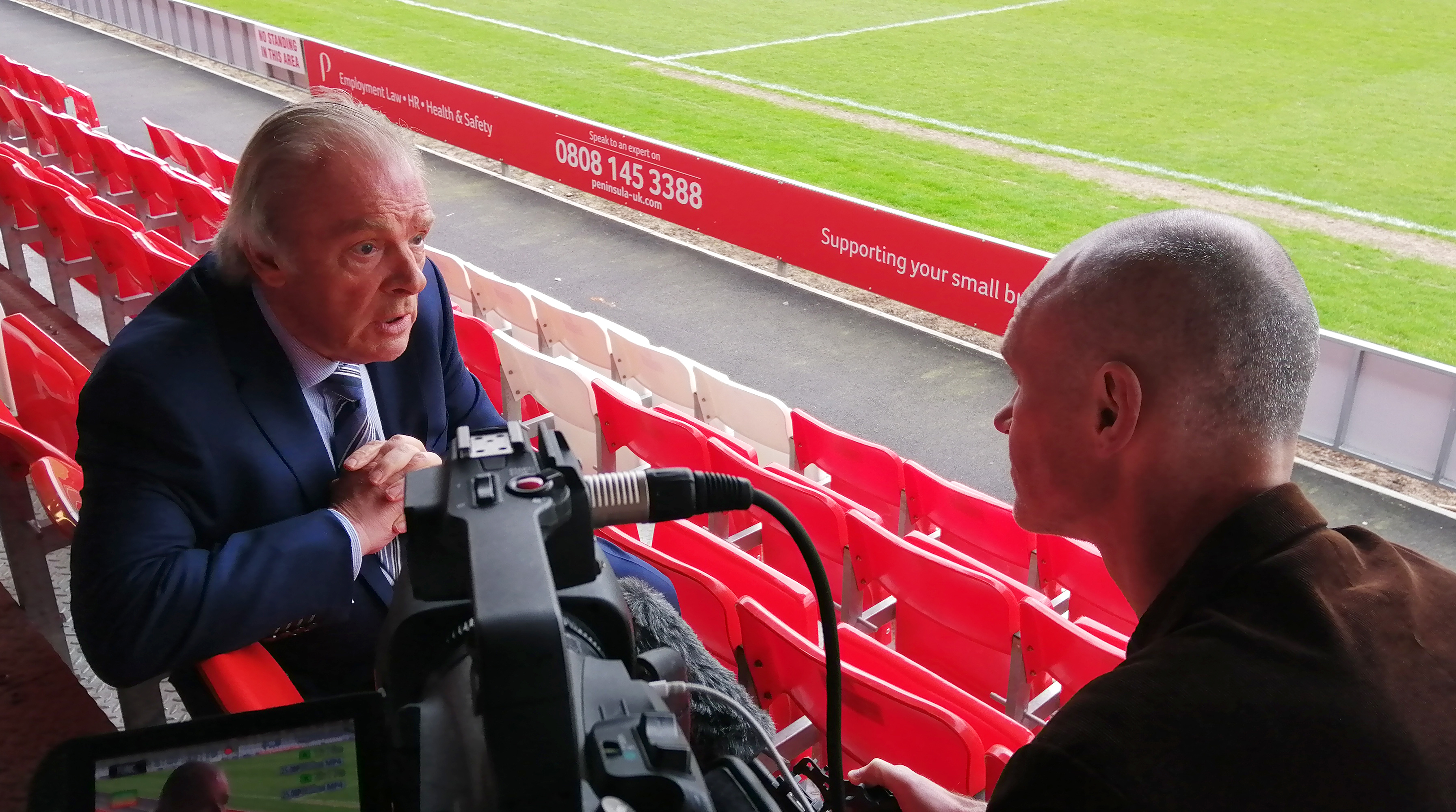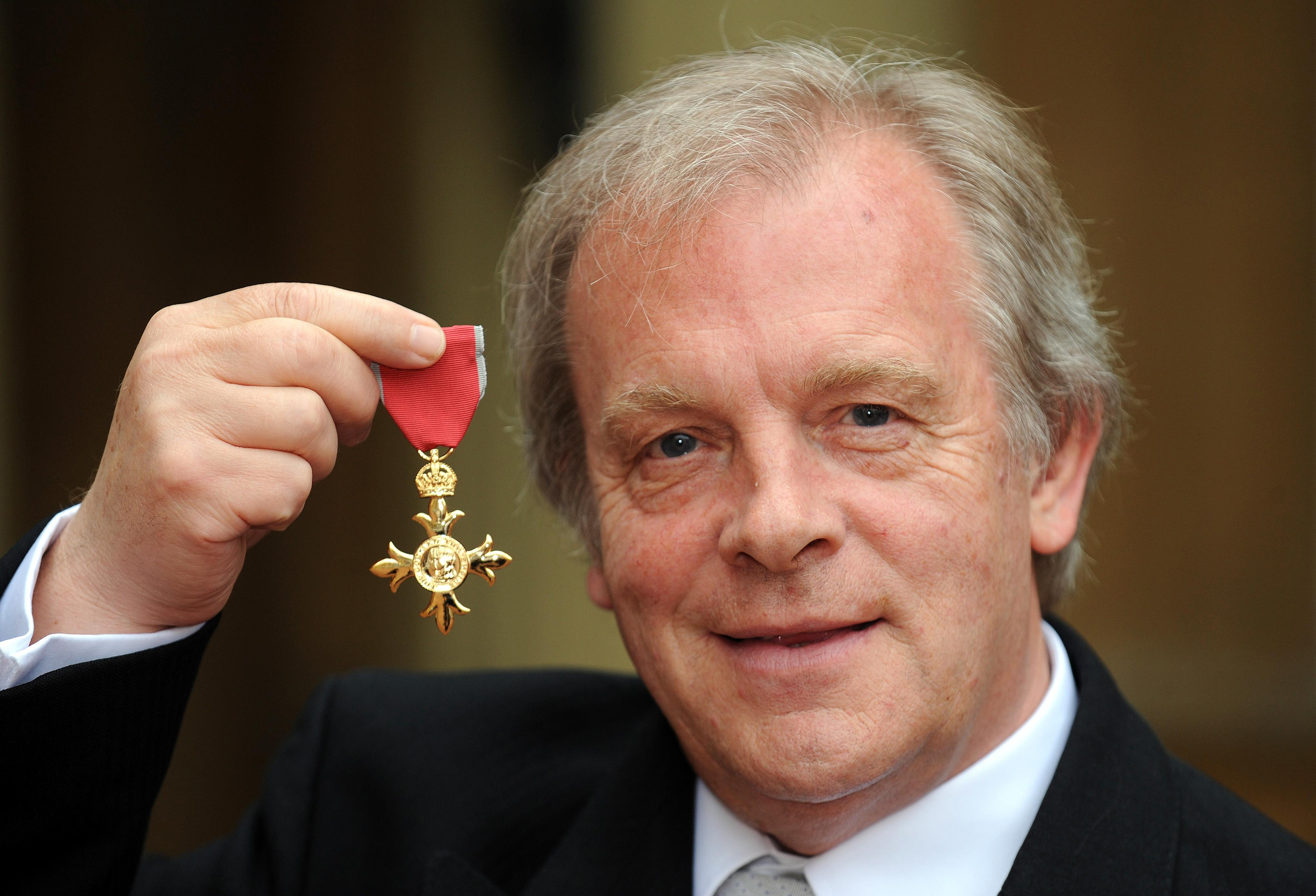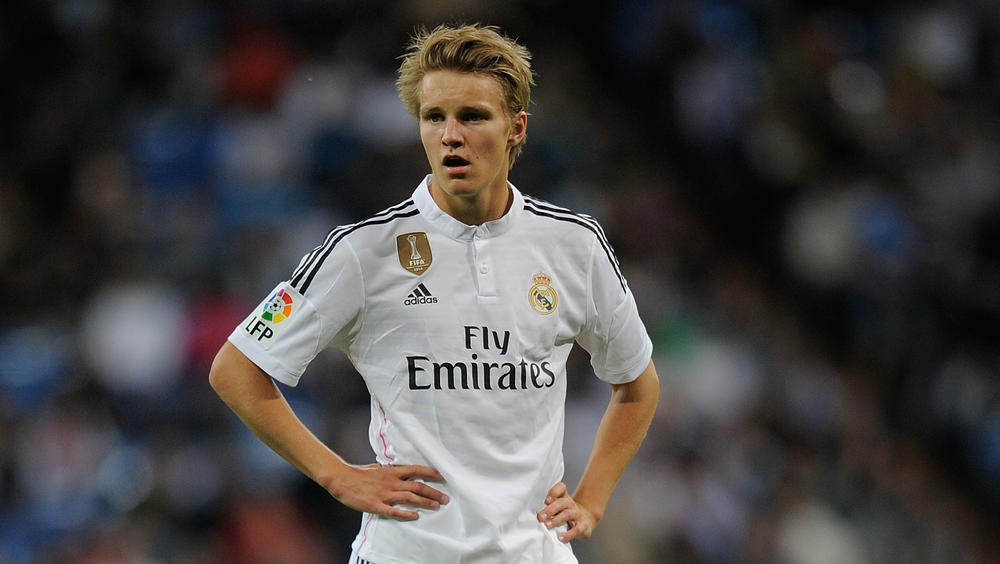Taylor defends pay and dementia record as he looks to his PFA legacy

Gordon Taylor has admitted to making mistakes during his 38-year spell in charge of the Professional Footballers’ Association but rejects claims he failed a generation of ex-players struggling with dementia-related illnesses.
At the trade union’s annual general meeting on Wednesday, the 74-year-old announced his plan to stand down after an independent review of the PFA is completed.
This means the former Bolton, Birmingham, Blackburn and Bury winger could quit as early as November, when the next AGM is scheduled, although he could still be in charge next year, depending on how long the QC-led review and search for his successor takes.
The announcement, however, does mark the beginning of the end of a relationship that started when Taylor signed for Bolton at 16, saw him progress from players’ rep to committee member to chairman to chief executive – a career arc that lasts almost 50 years.
It also signals the end of a hugely-divisive chapter in the union’s history and a bruising period for Taylor personally.
What started with an attempt by PFA chairman Ben Purkiss to ease Taylor towards retirement – and give the union a reboot – erupted into civil war and a spate of negative headlines.
Some of those stories were new – most notably the suggestion that the PFA broke trade union law by not making Taylor stand for re-election and issues around the governance of its charity – but others were old sticks with which to beat him.
Get FourFourTwo Newsletter
The best features, fun and footballing quizzes, straight to your inbox every week.

Speaking to Press Association Sport, he acknowledged there had been “disputes” with Purkiss and others but said there had been a “coming together” to ensure the union survives and thrives.
Asked if he had regrets, Taylor said: “Of course, I’m human. I’ve woken up feeling negative but making that negative a positive is the challenge.
“There’s not a football team in the world that can win every game. You just try to make sure you get two out of three right.”
The most common complaint has always been that he is overpaid.

His annual salary is now £1.3million but that has been topped up with a big bonus every third year when he has agreed a new funding arrangement with the Premier League – a deal best understood as a no-strike agreement in return for the league paying for the players’ benevolent fund and pensions.
“That’s how I was brought up, to value yourself,” said Taylor, remembering his early dealings with Bolton’s manager when he was a teenager.
“And I don’t write out my own wages. They are evaluated based on experience, other chief executives and the money I bring in.”
To underline this, he said that despite the recent negativity, he was still able to secure a three-year funding settlement with the Premier League, English Football League and FA, worth £60million annually.

So the game, players and union officials have got richer on his watch, and he believes the breadth and depth of the PFA’s services have grown, too.
Not everyone agrees, though, and the most strident criticism has come from the likes of Dawn Astle, who lost her father Jeff Astle to a neurological illness when he was only 59.
Since the former England and West Brom striker’s death in 2002, there have been numerous cases of ex-players dying from similar, dementia-related issues.
This has led to calls for the PFA to fund research into finding if there is a link between heading the ball and serious brain illnesses – calls Taylor’s critics say he did not heed until too late.

“We have lobbied and we have helped,” said Taylor, listing the work the union has done in modifying houses, respite care and paying medical bills.
Asked why the criticism keeps coming, he said: “Because it’s really hard. You’ve got the NHS, medical systems, drug companies, they’re all trying to find out what causes dementia, the world’s biggest killer.
“We’re more than prepared to play a part. But it’s like the issue we had with young players and sudden death syndrome. What we could do was heart-screening. It didn’t stop it but it improved the situation.
“Can the PFA resolve the world’s dementia issue? No, that’s going to take more than the PFA but it’s only right that we look after former members as best we can and take part in research. But that’s got to involve FIFA as well, as they have much bigger resources than us.”
The FA and PFA are now investing £100,000 a year each in a study looking to see if ex-players have a higher incidence of dementia than the general population but it will not help anyone suffering now or satisfy those who see his salary and wonder where the PFA’s priorities lie.
Taylor, however, is adamant he and the PFA have made a positive contribution to the game’s popularity and success.
“Football is a challenge every day, that’s why it’s been so difficult to have this stuff played out in the media, with so much of it incorrect,” he said.
“Much of what we do, and the thanks we get, is confidential and needs to be that way. But I do think we’ve been a force for good and one of the best sports trade unions in the world.
“I feel fortunate that I’ve not only been a player but a participant in making sure football remains the most popular spectator and participant sport in the world.”
FourFourTwo was launched in 1994 on the back of a World Cup that England hadn’t even qualified for. It was an act of madness… but it somehow worked out. Our mission is to offer our intelligent, international audience access to the game’s biggest names, insightful analysis... and a bit of a giggle. We unashamedly love this game and we hope that our coverage reflects that.

